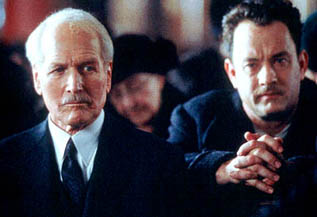|
|
A-List: CinematographersBy Josh SpiegelJune 10, 2010
Conrad Hall Some people out there probably are not fans of American Beauty, one of the more divisive recent Best Picture Oscar winners. It’s hard to argue with the criticisms (I’m not a huge fan of the film, but I’ve always liked it - still, not having seen it in years, I’m curious to see if it holds up) of the film being pretentious, smug, and so forth. That said, one of the reasons why American Beauty (or Sam Mendes’ follow-up film, Road to Perdition, which I would argue is extremely underrated) is so well-loved is because of the cinematography, courtesy of the late Conrad Hall, a man who was so well respected and appreciated that he won an Oscar for Road to Perdition after he passed away in 2002. Yes, the award was posthumous, but Hall won three total Oscars and was nominated a total of eight times. He wasn’t wanting for praise. What made Hall so special? Think of the classic scene, so often replayed, from the 1967 drama In Cold Blood, where one of the film’s main characters, a murderer with something of a soul, is lying in his bed, as he internally flagellates himself for his crimes, and rain spatters the window outside. The man is crying on the inside, a sappy thing to say, but a wondrous and powerful thing to behold when put on the silver screen. Hall’s work in films as varied as Road to Perdition, Butch Cassidy and the Sundance Kid, Tequila Sunrise, and Searching for Bobby Fischer proved that he was a diverse man behind the lens, and that he was always able to heighten the world of each film he worked on. Hall’s survived by his talented son, but it’s hard not to wish he was still alive to help create stark and memorable images, as he did in the past.
|

|
|
|

|
Friday, November 1, 2024
© 2024 Box Office Prophets, a division of One Of Us, Inc.


